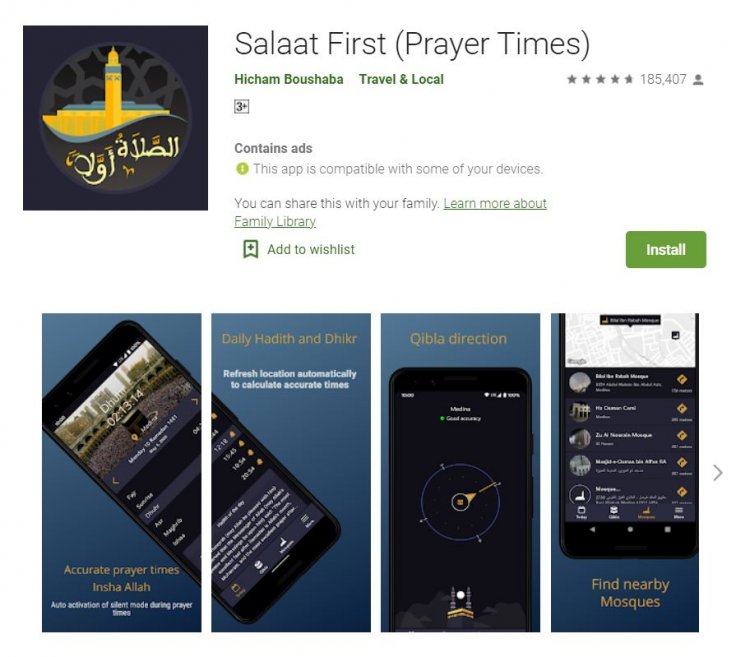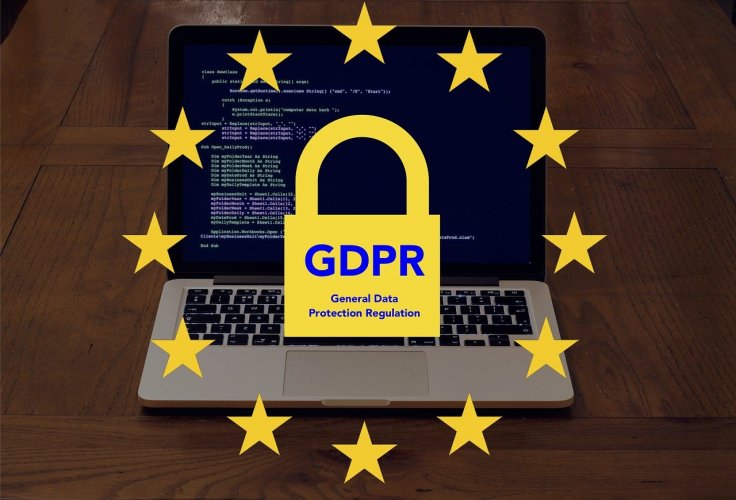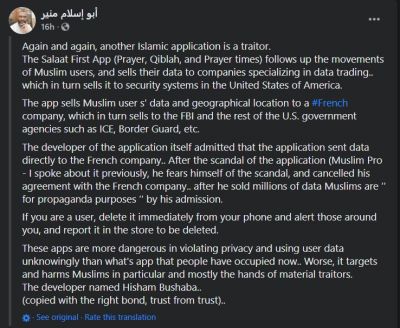The methods of surveillance have changed over time. Nowadays, government agencies do not need to follow someone to track their activities. Mobile phone users, unknowingly, hand over their privacy rights to the tech companies that in turn sell it to government contractors. A popular Muslim prayer app, named Salaat First, found selling users' location data to its partner that has customers with the US government agencies including the FBI and the ICE.
Salaat First, which reminds its users about Muslim prayer timings, has been downloaded over 10 million times on Android. To accurately tell users prayer times, Salaat First asks for permission to read precise location, has access to device ID, phone, media storage, USB storage and full network access. However, the app developer was selling the same user data to its partner, a French firm named Predicio.
"Being tracked all day provides a lot of information, and it shouldn't be usable against you, especially if you are unaware of it," a source who obtained the information told Vice.

How Does It Impact?
As Salaat First sell granular location data to Predicio, there are various implications. The French firm has its customers who deal with US government agencies including the Federal Bureau of Investigation (FBI), Customs and Border Protection (CBP) and Immigration and Customs Enforcement (ICE) amongst others.
These agencies can use location data to track users if they have any suspicion of wrongdoing. However, the more cynical aspect of it is to put Muslims under constant surveillance. The Muslim population in many countries including the US has been vilified over the years, especially after ISIS' emergence in Syria.
The dataset that was leaked to Vice contained precise latitude and longitude of the users, IP address, timestamp, phone model and operating system besides advertising ID. It allows agencies to target specific users and follow that person's movement.
Salaat First's developer Hicham Boushaba confirmed sending user location data to Predicio. According to him, the location data collection only applied to users in Germany, France, Italy and the UK. While Boushaba said that the app collects anonymized location data for ads, it can be combined to track users. However, Salaat First's iOS app was not found selling user data.

Violation of Privacy
While installing, the app asks for location access to calculate prayer times, Qibla direction and nearby mosques. It also informs users that the location data could be shared with "trusted third-party" services for targeted advertisements. But it does not inform the users about selling the data to law enforcement agencies. Hence, many users may not have any idea that Salaat First was selling their location data That is a violation of privacy.
As for Predicio, the company's client includes Venntel, a US government contractor. Gravy Analytics, the parent company of Venntel, has a record of selling location data to US government agencies. Nihad Awad, Council on American-Islamic Relations' national executive director, told Vice that app users should investigate how the app developers handle user data.
"Government agencies must immediately stop acquiring user data from popular Muslim digital applications to surveil, spy on or otherwise target the Muslim community in the United States, Europe and elsewhere. Congress should also launch a public inquiry in order to fully account for the past use of such data," he said.





Boushaba said that the app stopped data collection in October 2020 as Predicio's SDK was causing high battery usage on phones. On December 6, Salaat First canceled the contract with Predicio following reports of Venntel's and X-Mode's misuse of location data.
"When I accepted collaborating with Predicio, the agreement and the idea I had was that the collected data will be totally anonymized, and will be used for ads personalization and/or product improvement, same as any other data company does," Boushaba explained. He added that he never made any profit from the app. Instead, he donated the revenue to charitable organizations.
However, this is not the first time that a Muslim prayer app is found selling location data. In November, another popular prayer app MuslimPro was found selling user data to the US military. Bitsmedia, the company behind MuslimPro app denied the allegations and said that it cut ties with X-Mode after learning about location data collection possibilities.









